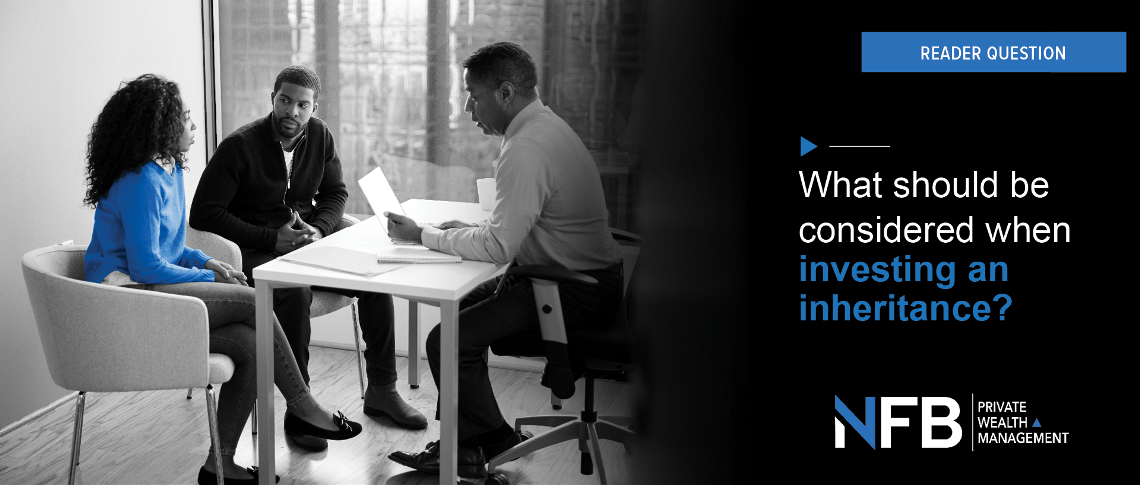Investing an Inheritance: What Should I be Considering?
There are several factors that need to be considered before embarking on your investment journey.


Reader Questions: I am a master’s student who has inherited R200 000. I would really like to invest it as I'm not happy with it just sitting in my bank account. However, I'm not too sure what the best way forward is. Please assist.
Risk profile
Arguably the most important consideration is how much risk you are willing and able to take on in order to achieve your investment goals. If your risk tolerance is low, you would typically look at high-income generating, stable assets with low volatility like government bonds. If your risk profile is medium, you would be willing to take on some risk, so you would look at a combination of asset classes with varying return and volatility characteristics, say a mixture of shares and bonds. If, however, your risk profile is high, then you should consider exposure to high risk assets like shares (which can be volatile but with a greater return potential than other more stable types of investments).
Time horizon
How long you are willing and able to put the money away for will also inform your decision. The time horizon is used to determine the amount of risk that you can take and availability of funds after the term. Are you able to put it away for 10 years without touching it? Or do you foresee a need for the funds in a year’s time? If you have a long time horizon (say, 10 years), you may be able to take on more risk for a higher potential reward but if you need the money within a year’s time, you should probably look at less risky, more stable types of investments so that you can be reasonably certain that the funds will be available at the end of the year period.
You also need to consider the tax implication that might be incurred at the end of the term. If, for instance, you invest into a unit trust, there might be a capital gains tax to be paid in five years’ time. Make sure you are aware of your tax responsibilities so that there are no nasty surprises that derail your investment efforts.
Types of investment
Once you have determined your risk profile and investment horizon, you will be better placed to pick which investment is best suited to your preferences. Broadly speaking, you can invest directly on your own, or you can invest in a fund (your money goes into a pool with other investors’, and a fund manager makes the investment decisions on your behalf). There are different types of funds available; two of the most common are:
Unit trust
This is a highly liquid investment, and portfolios can be changed according to your risk profile or market changes. They are managed by fund managers who take active investment decisions on how much risk to take and when to take it in order to meet the investment objective of the fund. Gains are taxed according to your individual tax profile. You are able to add to the investment on an ad hoc or regular basis. Similarly, you can take regular or ad hoc withdrawals from the investment.
Exchange-traded funds (ETF)
These are similar to unit trust funds, except that this is a passive investment vehicle (so no active fund manager) that tracks a certain index and is listed on the securities exchange. Often called tracker funds, your investment will move in line with the relevant index – up when the market is up, and down when the market is down.
I may have put forward more questions than answers in responding to your query, but financial planning is a holistic process, and all angles need to be thoroughly considered before making your choice.
I would highly recommend that you consult a financial adviser to assist you in making this decision. They will be able to construct a portfolio that works specifically for your circumstances – there’s no one-size-fits-all solution or answer when it comes to investing.
Is the lock down leaving you with surplus money at the end of the month? Not sure if you should use this surplus cash to pay off debt or invest it? This article may guide you in making an informed decision.













